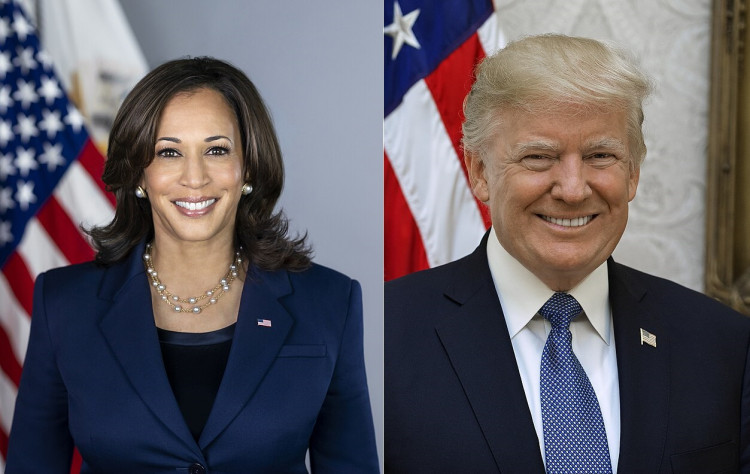Vice President Kamala Harris and former President Donald Trump are currently locked in a tight battle for the presidency, with new polling data showing a virtual tie between the two candidates on the national stage. According to two polls released this week by The New York Times, Siena College, and the Philadelphia Inquirer, both candidates are sitting at 47% support among likely voters across the United States. However, in the battleground state of Pennsylvania, Harris holds a slight four-point advantage over Trump, garnering 50% to Trump's 46%.
The polling was conducted just days before an apparent assassination attempt on Trump, an event that has heightened the stakes in the already contentious race. Nationally, Trump leads by a narrow margin among registered voters, with 47% to Harris' 46%. This result remains largely unchanged from polling earlier in September. The race has remained competitive since President Joe Biden exited the race, leaving Harris to lead the Democratic ticket.
In Pennsylvania, which has emerged as a key battleground state, Harris has a strong lead among women, securing 57% of their support compared to Trump's 41%. The vice president also holds an edge among younger voters aged 18-29, commanding 56% support, and has maintained strong backing from Black voters, with 77% in her favor. Trump, however, leads comfortably among men, securing 52% to Harris' 39%, and has a slight advantage among older voters in the state.
Polling data from other battleground states, including Michigan and Wisconsin, show Harris with a lead, although the margins vary. In Michigan, Harris is ahead by five points, while Wisconsin remains much closer, with Harris holding a razor-thin one-point lead over Trump.
Political analysts suggest that Pennsylvania's importance in the 2024 election cannot be overstated. Dr. Lee Miringoff, director of the Marist Institute for Public Opinion, said, "Pennsylvania is attracting the most attention of the Rust Belt states from the presidential candidates and with good reason. Winning Pennsylvania doesn't guarantee the White House, but it goes a long way."
The latest polling data comes as both campaigns focus on critical issues affecting voters. Inflation remains a top concern, with 33% of Pennsylvanians citing it as their primary issue, followed by immigration at 15% and preserving democracy at 27%. Abortion, while an important issue nationally for Democrats, ranked fourth in Pennsylvania, with 11% of voters listing it as their top concern. Similar issue breakdowns were observed in Wisconsin and Michigan, although in Michigan, the preservation of democracy was the leading concern for 30% of voters.
The gender gap in voter preferences is notable in the polling data. While Trump has a substantial lead among men, Harris has consistently outperformed him among women, particularly in Michigan, where she leads by 15 points among likely female voters. The disparity between the two candidates' appeal to different demographic groups underscores the tight and highly polarized nature of the race.
Recent shifts in Fox News' Power Rankings indicate that Harris is gaining ground in traditionally Republican-leaning states like North Carolina and Georgia. Both states are now considered toss-ups in the presidential race, a signal that Trump's grip on key southern strongholds may be weakening.






